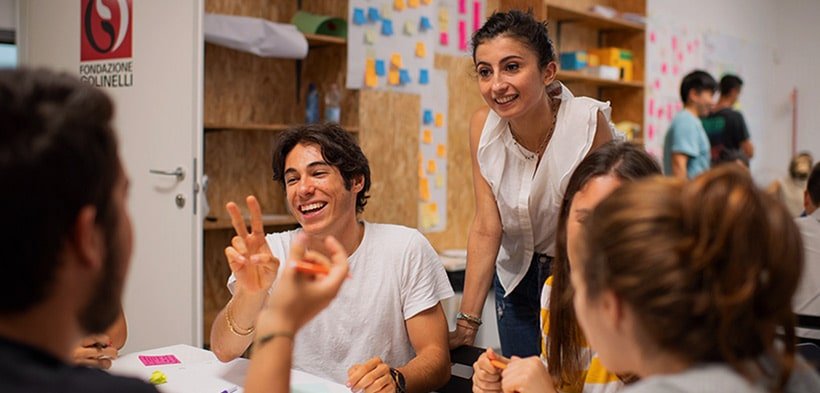Design thinking for education & project development
Design Thinking is a creative innovation process developed at Stanford, used by different teachers and schools around the world to design human (student) – centred and project-based learning experiences.
The course objective will be to discover the Design Thinking approach for education and to exchange good practices and working tools among practitioners, to develop new partnerships and project ideas, and to get inspired for opening our schools to Europe.
Working on European mobility, European project and European challenge, the course will allow to learn the different phases of design thinking creative process (iterative cycle of research, ideation and construction) through first-hand experimentation. Participants will put into practice different methodologies and tools (brainstorming, interviews, prototypes, etc.), acquiring knowledge and useful skills for the development of educational activities to open their schools to Europe.
International context, capacity building via peer learning, and expert trainers will be the main ingredients.
The outcomes will be to bring back to school:
- project ideas to promote creativity, critical thinking, investigative approach, collaboration among student
- new proposals and partnership to work on learning mobility projects and European citizenship
- a wider network of school partners all around Europe
Designed by Fondazione Golinelli in cooperation with Uniser.
4 days programme & 2 day travel: dates to be agreed
Venue: Fondazione Golinelli, Bologna- Italy
Language: English
Indicative Daily Programme
Day 1
- Partners and project presentation
- Get to know and workshop on expectations and background experiences
- Design thinking power crunch: introduction and hands-on experience to make creativity at work
- European and schools challenge: word caffè and working team for all the week
- Visiting Bologna
Day 2
- Team works on selected european challenge – part I
- The center of human centered Design: how to design by understanding the goals and dreams of
your students and colleagues - Discovery: On-field research, empathy, needfinding
- Synthesis and abstraction: what are the problems to be solved? What are the right questions to ask?
Day 3
- Job shadowing: visit and best practice presentation
- Team works on selectec european challenge – part II
- Ideation: Brainstorming, creativity, envisioning
- Experimentation: Build prototypes, Think with minds and hands, reality check
- Evolution: Make change happen and define actions to be taken
- Debrief
Day 4
- What I’m bringing home?
- Final evaluation and debriefing session

